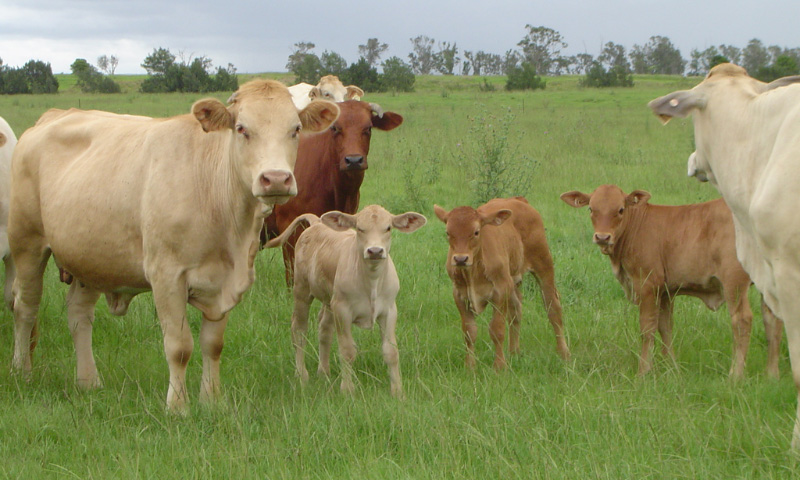Recognising mineral deficiencies…
While the symptoms of gross deficiencies or excesses can be obvious and easily diagnosed by veterinarians or experienced stockmen, the major problem encountered is often with subclinical mineral deficiencies in your animals.
The symptoms may be vague unthriftiness and lowered performance, often seasonal in nature. This is so common and widespread that slightly lowered production or reproduction rates are often considered normal. When dealing with subclinical deficiencies the recommended action is always to look first for the cause… which is often poor pasture quality.
Pasture quality determines animal nutrition…
During Winter and dry conditions, mineral nutrients are lacking from fodder, resulting in peak requirements for supplementation.
Even during good conditions, pasture quality is dependent on the levels of minerals and trace elements in the soil. It is now known that at least eighty-nine mineral nutrients are essential for healthy plant growth, so if soil is nutrient deficient, pasture cannot supply the dietary requirements of animals.
Broad spectrum of minerals and trace elements are essential…
Almost 3% of a cow’s body weight is comprised of minerals, and these minerals and trace elements all interact and are dependent on each other to perform specific functions. Reproduction alone is known to be dependent on Phosphorus, Copper, Potassium, Manganese, Iron, Zinc and Magnesium.
Minerals are also essential for the utilization of energy and protein and trace minerals are directly involved in the reactions of animal metabolism. Minerals also interact with the organic components of feed rations to improve nutrient utilization.
To benefit from the full nutritional value of any one mineral, adequate quantities of all other minerals must also be available. These elements cannot be synthesized in the body.
Minerals improve productivity…
Traditionally farmers have only provided access to supplements during winter or drought conditions. Many farmers have now found that the provision of minerals year round has resulted in their animals maintaining better condition during dry periods and overall lower costs for their annual supplemental requirements.
Extensive trials have proven that supplementing during periods of good pasture growth provides the grazier with the opportunity to generate extra profit.
Remember, profit requires maximum producing livestock and maximum production is dependent on daily diets that provide required levels of all necessary nutrients, including minerals and trace minerals.
